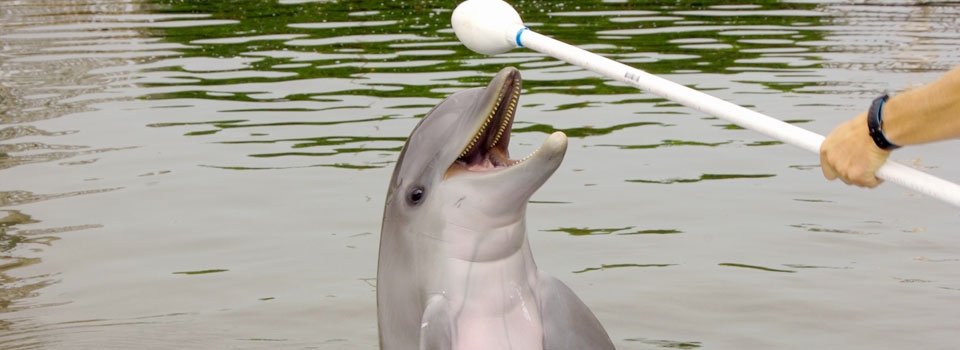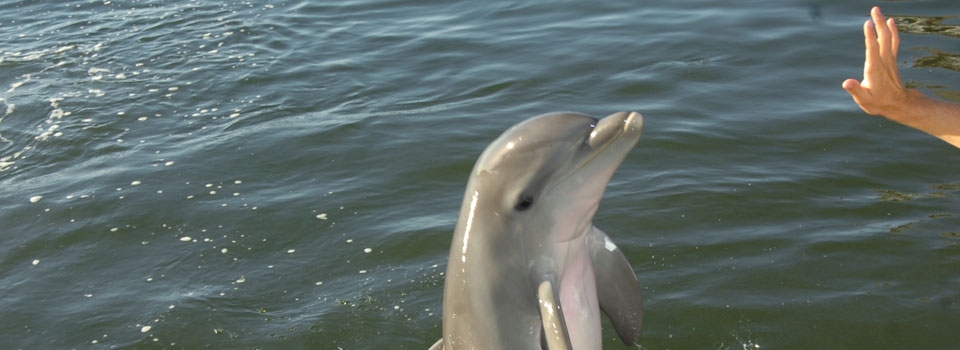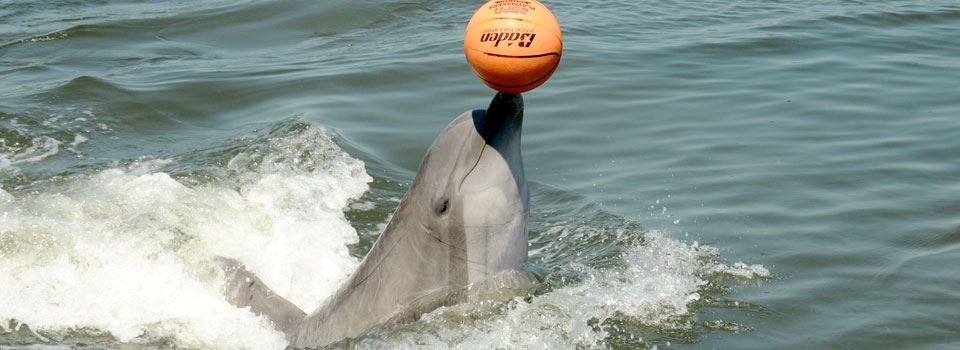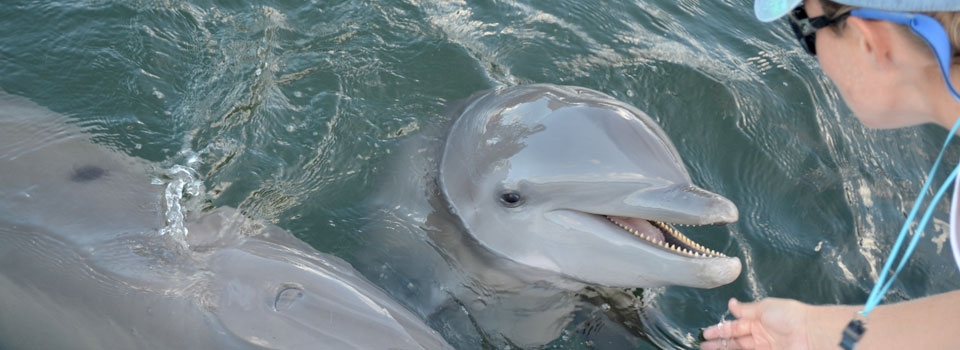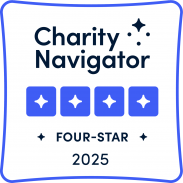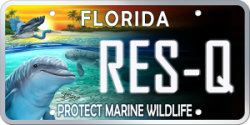- RESEARCH
- LEARN
- Child Education »
- Teen Education »
- Adult Education »
- Resources »
- Kids Zone »
- SHOP

- Providing Sanctuary and a Forever Home since 1984.
- A not-for-profit 501(c)3 marine mammal education and research facility for more than 35 years.
- Providing Sanctuary and a Forever Home since 1984.
A not-for-profit 501(c)3 marine mammal education and research facility for more than 35 years.
Facilities & Organizations
Facilities & Organizations
PROFESSIONAL ASSOCIATIONS/SOCIETIES
|
Acoustical Society of America
Alliance for Marine Mammal Parks and Aquariums
American Association of Zookeepers
American Society of Mammalogists
American Zoo and Aquarium Association |
European Association for Aquatic Mammals
|
PUBLIC EDUCATION FACILITIES
|
Dolphin Research Center
Clearwater Marine Aquarium
Long Beach Aquarium of the Pacific
Institute for Marine Mammal Studies
Marineland of Florida
|
Minnesota Zoo
Monterey Bay Aquarium
Point Defiance Zoo and Aquarium |
ACADEMIC/RESEARCH ORGANIZATIONS
|
Allied Whale
Animal Behavior Institute, Inc.
The Dolphin Project
Wild Dolphin Project
Woods Hole Oceanographic Institution |
Hubbs-Sea World Research Institute
Kewalo Basin Marine Mammal Laboratory
Atlantic Dolphin Research Cooperative
Long Marine Lab at UC Santa Cruz
Marine Mammal Research Program
Chincoteague Bay Field Station
Coastal Dolphin Survey Project
New England Aquarium
|
GOVERNMENT
|
Marine Mammal Commission
National Oceanic and Atmospheric Association (NOAA) |
NOAA Fisheries, Office of Protected Resources
U.S. Office of Personnel Management
|
ENVIRONMENTAL ORGANIZATIONS
|
Earthwatch Institute
Marine Stewardship Council |
The Ocean Conservancy 1725 DeSales St., NW, Suite 600 Washington D.C. 20036 Phone: Phone: (202) 429-5609
Oceanic Society Expeditions |

Research Careers
Research Careers
Thank you for your interest in careers related to marine mammal research. If you are interested in marine mammals, there are many career paths you can choose to work with them or for them. The opportunities for conducting research vary depending on your setting.
How should I prepare educationally for my research career?
It’s never too early to start preparing for your research career. While in middle and high school, you can gain valuable knowledge and experiences in the field of biology. You will need lots of math and science classes to gain a strong background for college.
In order to work with marine mammal research, you will need a minimum of a 4-year degree, although a Masters or PhD is usually necessary to conduct your own research projects. Common undergraduate majors are Biology, Behavioral Ecology, Marine Biology, Psychology, or Animal Behavior.
The college you choose will depend on your interests. You must first decide the area in which you would like to major. Your library will have a book of colleges to help you determine the schools in the U.S. that offer your intended major. Look for schools that offer biology or animal behavior and psychology majors. You can then look at the size, location and cost of the listed colleges to help you narrow-down your choices. We have a list of colleges and universities in Florida on our website (www.dolphins.org) that offer biology majors. Look under the section called “Marine Education”.
Once you find your top three choices, you should try to visit the schools to see if they meet your needs. Talk to both faculty and students to learn about the positive and negative aspects of the school. If possible try to spend a night with a current student in your future major and attend at least one or two classes. Also, make sure the professors in your department will be supportive of your future career and will be able to assist you in achieving your goals. The school career centers also have helpful resources for students, so you may want to see what your potential schools have to offer their graduates.
Should I study biology or psychology?
That depends on your interests! Biologists typically study a species’ physiology, naturally occurring behaviors, or characteristics of an entire population, such as home range, diet, or social groupings. Psychologists are commonly interested in topics that are more internal that can be experimentally investigated using a small number of animals. Cognition is a good example, which is the mental capacity to think critically, analyze and problem solve.
However, there are several areas where the interests of biologists and psychologists overlap. For example, echolocation is an active area of research by both biologists and psychologists. A biologist may investigate what anatomical structures produce echolocation clicks, or the sound characteristics (frequency, amplitude, etc.) of the clicks. A psychologist may examine what kind of information the dolphin receives from echolocation – an echo-image, or simply a sound pattern that they’ve encountered before with other senses.
As a general rule, biologists are more likely to study wild populations, and psychologists are more likely to study individuals in human care.
What types of research are there?
Observational with wild populations – People who do this type of research usually go out into the ocean in a boat and observe marine mammals in their natural environment. They may photograph them for identification, record the sounds that they make, or record their behavior during specific situations. Some studies are land-based in which the animals are observed with binoculars. Some examples of this type of research are population counts, photo I.D. projects that track individuals over time, or interactions with boaters. Research with wild dolphins sounds glamorous and can be at times. Do not be disillusioned, however, it is often frustrating not to see whales, the weather and ocean can often be harsh, and much of the time is still spent back at the “lab” identifying individuals and analyzing results. Some researchers take this route, because it is very rewarding when successful.
Observational with human care populations – Since it is difficult to observe marine mammals in their own environment (i.e., underwater, moving quickly), many projects are carried out with animals that are in human care facilities. These types of studies usually focus on behavior. Some studies record information about a specific behavior that occurs during normal social interactions. Other studies introduce a stimulus to the animal’s environment and then record the response. Some examples of this type of research are studying calf development, mother-calf relationships, and recording and cataloging whistles with associated behaviors.
Behavioral with human care populations – This type of research involves training animals to perform specific behaviors and then recording their responses. In the training phase of the project, the subject learns what stimulus it is supposed to pay attention to and how to respond. In the testing phase, the stimulus is usually varied to see how the animal interprets the new information. Some examples of questions that can be studied with behavioral methods are audiograms (hearing thresholds), visual acuity (eyesight test), communication, imitation, and cognition
Behavioral research with wild marine mammals is impractical and often impossible.
Physiological – This type of research is often carried out by veterinarians or people with medical backgrounds. Some projects involve conducting medical tests, such as collecting blood samples. Others involve studying animals that have died (often from strandings) to learn things such as the reason for stranding, the amount of toxins in the blubber, stomach contents, or to be able to describe internal anatomy.
Should I volunteer or intern?
Yes! It can be quite difficult to get your foot in the door of a marine mammal facility. The best way to gain valuable hands–on experience is to complete volunteer work or an internship at a facility that has animals (they don’t necessarily have to be dolphins). Many colleges require or strongly advise these programs because they enable you to learn while in the field. An internship will help you to determine whether or not you want to continue to pursue a research career and what aspect of research you may want to participate in. People often have a glorified image of working with marine mammals and do not realize the hard work and dedication it takes to succeed in the field. DRC offers both volunteer and intern programs for individuals 18 and over. We even offer a Research Intern volunteer position typically each semester. You can find information about our programs at Dolphin Research Center.
*Many of DRC’s staff members participated in our volunteer and intern program before being hired as employees. Many facilities look highly upon the dedication and commitment necessary to be a volunteer.*
Are there any programs to help me learn about research and dolphins?
Participation in programs like our week long DolphinLab can be very helpful. DolphinLab introduces you to the overall operation of a marine mammal facility and educates you about topics such as training, husbandry, physiology, maternity, stranding, conservation, research, and more. This program also lets you get up close and personal with the dolphins through swims and dock interactions. DolphinLab exposes you to many different career opportunities in the marine mammal field and helps you to determine your area of interest. We also offer a specific research DolphinLab course for adults. You can find more information about DolphinLab programs on our web page at DolphinLab. We hope to see you soon!
What are the average salary and benefits of a researcher?
Marine mammal scientists enter this field for the satisfaction of the work, not for the money-making potential of the career. Salaries vary greatly among marine mammal scientists, with government and industry jobs having the highest pay. Salary levels will increase with years of experience and graduate degrees, but generally remain low considering the amount of experience and education needed. High competition in this field most likely will keep salaries at a modest level. A 1990 survey of 1,234 mammalogists conducted by the American Society of Mammalogists indicated that 42.7% of the respondents earned >$40,000/year. 21.2% of the respondents fell into the $30,000-$40,000 range. (Quoted from The Society of Marine Mammalogy.)
What are the positive and negative aspects of your job?
The job varies considerably depending on what kind of research you do and at what level you are in your career. The best part about being a marine mammal researcher is that you are constantly discovering new things about the animals that interest you, things that no one else has known before. Much of the information that comes out of research projects contributes to better protection or greater understanding of the species. For example, because facilities have tracked physiology and development so closely with the dolphins in their care, researchers of wild dolphins have “standards” that they can compare with the dolphins they study.
Another positive aspect is the amount of time you can spend observing the animals just being themselves.
One negative aspect is that research can be very repetitive and monotonous. In behavioral research, it often takes several hundred trials to have enough statistical power to analyze the results. Likewise with observational research, you must record the exact same behaviors, filling out the exact same data sheets, for extended periods of time. For some people, the routine can become quite tedious.
How do I get to work directly with the animals?
If your goal is to have direct contact with marine mammals on a daily basis, then you would most likely need to become a trainer. However, trainers usually don’t get to do research, although they may assist researchers in some cases. If your character and skills are more suited for other careers in the field, then there are many other ways you can work in a marine mammal environment. Here are a few examples:
Veterinarian: As a marine mammal veterinarian, you are responsible for the care and health of the animals. You will conduct medical procedures and check-ups. You will assess their needs and monitor their diets, vitamins and medicine. You may be a full-time marine mammal veterinarian or you may have a private practice for domestic animals and be affiliated with a facility that has dolphins or sea lions.
Veterinary Technician: A vet tech assists the veterinarian with medical procedures and check-ups. Often, facilities may have a full-time vet tech that oversees general medical care and diet planning of the marine mammals. Veterinary technicians may oversee diet records and analyze specimens collected from animals.
Animal Care: Some larger facilities have marine mammals that do not participate in training sessions, and will be cared for by animal care staff members. These animals may include stranded dolphins undergoing recovery or manatees. Animal care staff will prepare diets, feed animals and clean exhibits.
Educator: As an education staff member at DRC, you teach seminars and lead workshops on a variety of marine mammal topics. At DRC, you focus on our week-long program called DolphinLab. Educators also respond to requests for information from the public, visit schools and community organizations for outreach programs, and create exciting classroom activities. At DRC our senior education instructors have the opportunity to be trained to work directly with the dolphins. Some facilities teach with live marine animals, such as invertebrates, and educators are responsible for bringing them into the classroom for hands-on education. At many zoos, a variety of animals may be used for hands-on learning and the education staff may be asked to not only show these animals in presentations, but also be their primary caregivers.
We have listed a few of the many career options that are available at a marine mammal facility. Look for opportunities in management, media, marketing, accounting, human resources, program development, computer programming, ground and tank maintenance, customer service, photographers, videographers, dolphin assisted therapy, medical, and much more.
What books or references would help me to find out more about research and other careers in the marine mammal field?
“Careers in Marine Biology,” Jay Hemdal (Freshwater and Marine Aquarium, Vol 10, Feb. 1987, pg. 66-67).
“I’ll do Anything to Work with Whales or Dolphins!” Valerie Chase (Current, 1992, 11 (1): 31-33).
“Training and Careers in Marine Science: An Information Packet “
Available for a small fee from:
International Oceanographic Foundation
4600 Rickenbacker Causeway
Miami, FL 33149
“Strategies For Pursuing A Career In Marine Mammal Science” by the Society of Marine Mammalogy. Available at http://pegasus.cc.ucf.edu/~odell/strat.htm.
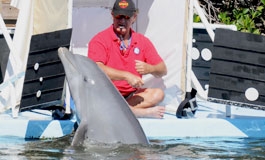
Schools & Universities
Schools & Universities
Schools with a focus on animal care and training
Moorpark College
Exotic Animal Training and Management Program
7075 Campus Road
Moorpark, CA 93021
Phone: (805) 378-1441
www.moorparkcollege.edu/current-students/teaching-zoo
Santa Fe Community College
Zoo Animal Technology Program
Zoo NW Campus
Gainesville, FL 32606
Phone: (352) 395-5604
https://www.sfcollege.edu/zoo/index
Undergraduate and Graduate Schools
|
University of Alaska Fairbanks
University of California-Davis
University of California-Santa Cruz
California State University
College of the Atlantic
The College of William and Mary
Cornell University
Dalhousie University
University of Delaware
Duke University Marine Laboratory
Eckerd College
University of Florida
Florida Atlantic University
Florida Institute of Technology
Florida International University
Florida State University
The University of Georgia Marine Institute
Harbor Branch Oceanographic Institution
University of Hawaii at Manoa
University of Maine
University of Massachusetts
Massachusetts Institute of Technology
University of Miami 1 University Circle Monterey, CA 93943-5001 (831) 656-2441/2 DSN 878-2441/2 https://my.nps.edu/web/oceanography |
University of New Hampshire
Northeastern University
Nova Southeastern University
Old Dominion University
Oregon State University
Orange Coast College
Universidad Nacional de Mar del Plata
University of Queensland
University of Rhode Island
Roger Williams University
Rutgers University
San Diego State University
Scripps Institute of Oceanography
Smith College
The University of South Carolina
University of Southern Mississippi
Stanford University
University of Tampa
The University of Texas
Texas A&M University
University of Washington
University of West Florida
Woods Hole Oceanographic Institution |
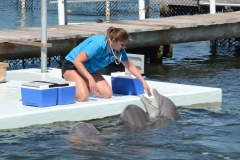
Training Careers
Training Careers
Thank you for your interest in careers related to marine mammal training. If you are interested in marine mammals, there are many career paths you can choose to work with them or for them. Due to an overwhelming interest in training, we have created this guide to answer many of the most commonly asked questions about how to become a trainer. Of course, the responsibilities of being a trainer and the requirements to become a trainer vary from facility to facility. We have focused our responses on training at Dolphin Research Center. Good luck with your future training career!
How should I prepare educationally for my training career?
It’s never too early to start preparing for your training career. While in middle and high school, you can gain valuable knowledge and experiences in the field of biology. You will need lots of math and science classes to gain a strong background for college. Many trainers pursue degrees in Biology, Marine Biology, Psychology, or Animal Behavior in college.
In 2012, Dolphin Research Center established the Dolphin Research Training Institute (DRCTI). We offer a hybrid (online and onsite) program called Dolphin Academy for those looking to pursue a career in animal training. Find out more about our programs.
Moorpark College in California focuses on exotic animal training in a two-year program. The school is extremely hands-on, and graduates have a great success rate of employment. Please bear in mind, however, that some marine mammal facilities require a four-year degree for employment.
The college you choose will depend on your interests. You must first decide the area in which you would like to major. Your library will have a book of colleges to help you determine the schools in the U.S. that offer your intended major. Look for schools that offer biology or animal behavior and psychology majors. You can then look at the size, location, and cost of the listed colleges to help you narrow down your choices. We have a list of colleges and universities in Florida on our website (www.dolphins.org) that offer biology majors. Look under the section “Marine Education/Career Information/Schools and Universities”.
Once you find your top choices, you should try to visit the schools to see if they meet your needs. Talk to both faculty and students to learn about the positive and negative aspects of the school. If possible try to spend a night with a current student in your future major and attend at least one or two classes. Also, make sure the professors in your department will be supportive of your future career and will be able to assist you in achieving your goals. The school career centers also have helpful resources for students, so you may want to see what your potential schools have to offer their graduates.
What other skills do I need to be a trainer?
Every facility has a different philosophy and mission and therefore looks for different skills in their employees. At many dolphin facilities, public speaking skills will be very important. Take classes that will advance your public speaking skills and knowledge of the animals and environment in which you will be working. Physical fitness is also important and because you will be working in an aquatic environment, swimming skills will be required. Many facilities required a swim test before you will be hired. Additionally, you should become SCUBA certified since some facilities only hire trainers if they are SCUBA certified.
Should I volunteer or intern?
Yes! It can be quite difficult to get your foot in the door of a marine mammal facility. The best way to gain valuable hands-on experience is to complete volunteer work or an internship at a facility that has animals (they don’t necessarily have to be dolphins). Many colleges require or strongly advise these programs because they enable you to learn while in the field. They also help you to determine whether or not you want to continue to pursue a training career. People often have a glorified image of marine mammal training and do not realize the hard work and dedication it takes to succeed in the field. DRC offers both volunteer and intern programs for individuals 18 and over. You can find information about our programs in the Volunteer/Intern area of this website. *Roughly one-quarter of DRC’s staff participated in our volunteer program before being hired as employees. Many facilities look highly upon the dedication and commitment necessary to be a volunteer*
Are there any programs to help me learn about training and dolphins?
Participation in programs like our week-long DolphinLab can be very helpful. DolphinLab introduces you to the overall operation of a marine mammal facility and educates you about topics such as training, husbandry, physiology, maternity, stranding, conservation, research, and more. This program also lets you get up close and personal with the dolphins through swims and dock time. DolphinLab exposes you to many different career opportunities in the marine mammal field and helps you to determine your area of interest. You can find more information about DolphinLab on our web page. We hope to see you soon!
What are the average salary and benefits of a trainer? The average salary of a trainer varies from one facility to another but is often in the $18,000-$20,000 range for an entry-level position. Most trainers have a second source of income to supplement their salary.
Higher salaries are often given to people with multiple years of experience; on average a trainer with 8-12 years of experience will make $25,000 - $40,000 a year. Most facilities usually offer medical plans to full-time staff members. Of course, the greatest benefit is the relationship you form with the animals!
What is a typical day like being a dolphin trainer?
Only dependable people can be successful trainers. Trainers are responsible for preparing meals, feeding, training, and cleaning fish containers. The dolphins and trainers have training sessions each day, which are both mentally and physically stimulating. All of the dolphins receive at least three meals a day – usually a feeding in the morning, midday and afternoon. Trainers also make sure that all of our animals receive their vitamins and any necessary medications. The dolphins also practice medical behaviors with their trainers, and each dolphin has a physical twice a year. As a trainer, you need to show a great deal of enthusiasm and energy to keep the dolphins excited and interested. Trainers may continue to work on behaviors that have already been taught to the dolphins or they may have the opportunity (after they have gained much experience) to train a dolphin a new behavior. Each day brings something new to a trainer’s schedule. Life is never dull when you are a dolphin trainer!
What are the positive and negative aspects of your job?
Of course, there are drawbacks to working with animals. Being a trainer means you will have to maintain the animals’ living environment, which includes cleaning animals’ homes. This can be difficult and tiresome work. At many facilities, you will also be outside a great deal during the hot summer months. You are working with dynamic animals, so you need to be flexible to their schedule, which may mean long, irregular hours. Trainers often work on holidays because the dolphins still need to be provided with care no matter what day it is. There are many positive aspects of being a trainer, which include the relationships you build with the individual animals. On a daily basis, you get to work with animals who all have their own unique dolphinalities (personalities). You also have the chance to work closely with a team of other trainers and to support each other in your progress with the animals.
How long does it take before I get to work with the animals?
When you start at a facility, you will probably shadow (follow) senior trainers a great deal to become more familiar with the characteristics of each dolphin and to learn different training procedures. You may then start to feed and interact with a dolphin under the supervision of senior trainers. Eventually, the trainers will teach you to communicate with the dolphins through hand signals. As you grow and learn, you will gain more responsibilities with the animals. For example: training new behaviors, working on medical behaviors, or facilitating programs where the public interacts with the dolphins. Your growth rate will depend on past experiences, your comfort level, and confidence.
Do I need to be a trainer to work with animals?
If your goal is to have direct contact with marine mammals on a daily basis, then you would most likely need to become a trainer. If your character and skills are more suited for other careers in the field, then there are many other ways you can work in a marine mammal environment. Here are a few examples:
Educator: As an Education member, you teach seminars and lead workshops on a variety of marine mammal topics. Facilities teach with live marine animals and sometimes bring them into the classroom for hands-on education. As a DRC educator, you focus on our week-long program called DolphinLab. We also respond to requests for information from the public, visit schools and community organizations for outreach programs, and create exciting classroom activities.
Veterinarian: As a marine mammal veterinarian, you are responsible for the care and health of the animals. You will assist with medical procedures and check-ups. You will assess their needs and monitor their diets, vitamins, and medicine. You may have a private practice for domestic animals and be affiliated with a facility that has dolphins or sea lions.
Researcher: As a researcher, you will conduct a variety of studies often relating to dolphin intelligence, communication, and physiology. You may conduct these studies with dolphins in human care or in the wild depending on your research question. Your work is typically supported by grant money that you will have to solicit in competition with other researchers. You are often responsible for publishing your results. If you would like to conduct your own research, a doctorate degree is necessary to succeed in this field. If you would like to assist other researchers, an undergraduate degree is required.
Husbandry Expert: As a husbandry expert your job is to supervise the preparation of the animals’ food and vitamins, and to order the food supply. This job requires a great deal of physical work because it involves the maintenance of the fish supply and the sanitation of the marine mammal kitchen. This area needs to be clean enough so you could eat off the floor! You need to pay attention to detail to make sure your fish supply is of the highest quality. You can take pride in the fact that you are directly responsible for maintaining a healthy diet for the animals.
We have listed a few of the many career options that are available at a marine mammal facility. Look for opportunities in management, media, marketing, accounting, human resources, program development, computer programming, ground and tank maintenance, customer service, photographers, videographers, dolphin-assisted therapy, medical, and much more.
What books or references would help me to find out more about training and other careers in the marine mammal field?
“Careers in Marine Biology”, Jay Hemdal (freshwater and Marine Aquarium, Vol 10, Feb. 1987, pg. 66-67).
“Don’t Shoot the Dog”, Karen Pryor (Bantam Books, 1999).
“I’ll do Anything to Work with Whales or Dolphins!”, Valerie Chase (Current, 1992, 11 (1): 31-33).
“Training and Careers in Marine Science: An Information Packet”
Available for a small fee from:
International Oceanographic Foundation
4600 Rickenbacker Causeway
Miami, FL 33149
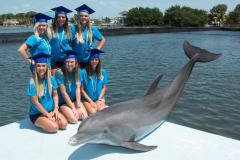
Our Mission -
Through education, research and rescue, Dolphin Research Center promotes peaceful coexistence,
cooperation and communication between marine mammals, humans and the environment we share with
the well being of DRC's animals taking precedence.
